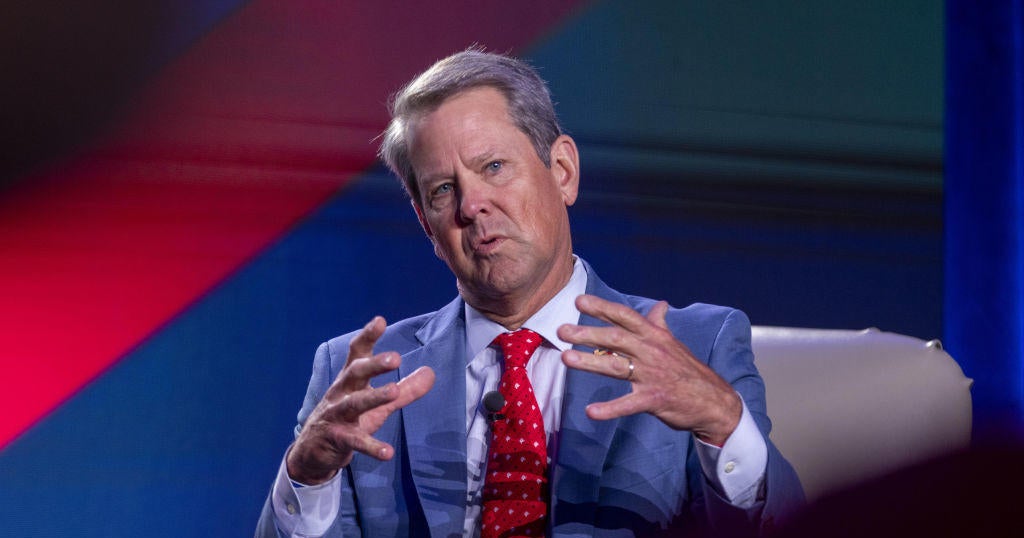U.S. officials say the White House wants to take advantage of Israel's massive blow to Hezbollah's leadership and infrastructure to push for an election of a new Lebanese president in the coming days.
Why it matters: Lebanon hasn't had a president for almost two years, which has increased instability and exacerbated the political and economic crisis in the country.
- Hezbollah's leader Hassan Nasrallah, top militia commanders and other Hezbollah members were killed by Israeli airstrikes in recent weeks, weakening the influential militia.
- The Israeli attacks killed more than 1,100 people in Lebanon, including dozens of women and children, the Lebanese health ministry said without specifying how many of the people killed were Hezbollah members. Hezbollah in recent weeks stopped publishing the number of casualties it suffered.
Nasrallah blocked any effort to elect a person who was not its ally Suleiman Frangieh.
- One candidate is the commander of the Lebanese armed forces Gen. Joseph Aoun, who is supported by the U.S. and France. The Lebanese armed forces will be a key player in any post-war settlement in Lebanon.
- With Nasrallah dead and Hezbollah at its weakest in years, the Biden administration thinks there is now an opportunity to dramatically reduce its influence on the Lebanese political system and elect a new president who is not an ally of the Shia militia, two U.S. officials said.
Catch up quick: The Lebanese political system is built on power sharing between the different religious sects. The post of the president is occupied by a Christian.
- At the end of October 2022, former president Michel Aoun, who had close relations with Hezbollah, ended his term. Since then the Lebanese parliament hasn't reached a consensus on a new president.
- The U.S., France and several Arab countries, including Saudi Arabia and Qatar, have been trying for two years to mediate between the different political parties in the country to reach a compromise, but almost every initiative was undermined by Hezbollah.
- "We have made clear for some time that we think the Lebanese government needs to overcome the dysfunction in the system — one of the primary instigators of that dysfunction being the Hezbollah veto over who the next president would be — and elect a president. That remains true," U.S. State Department spokesperson Matthew Miller said on Thursday.
Behind the scenes: Two U.S. officials said the White House sees the current situation in Lebanon as an opportunity to break the deadlock over the election of a Lebanese president and thinks this should be the top priority, even before a push for a ceasefire between Israel and Hezbollah.
- In recent days, Lebanon's acting prime minister Najib Mikati told President Biden's adviser Amos Hochstein he wants to move forward with the plan the U.S. laid out in June for a diplomatic solution in Lebanon.
- Hochstein told Mikati that the proposal "is off the table" because the conditions on the ground have changed in the last two weeks due to the increased fighting between Israel and Hezbollah, the U.S. officials said.
- Instead, Hochstein told Mikati the priority should be electing a new president.
- Lebanese foreign minister Abdallah Bou Habib met on Thursday in Washington with the State Department's top Middle East diplomat Barbara Leaf. According to the Lebanese official news agency, Leaf told Bou Habib that there is a need to elect a new president as soon as possible due to the situation in the country.
- The White House didn't respond to a request for comment.
State of play: On Thursday, Mikati called for electing as soon as possible a new president who represents the majority of Lebanese.
- "The key point is to elect a president who is not aligned with one team against another," Mikati said.
What to watch: The U.S. officials said the first priory is electing a Lebanese president, then reaching a diplomatic solution to the conflict at the Israeli-Lebanese border based on a UN resolution that was adopted after the 2006 war in Lebanon but never fully implemented, and then appointing a new Lebanese prime minister.




